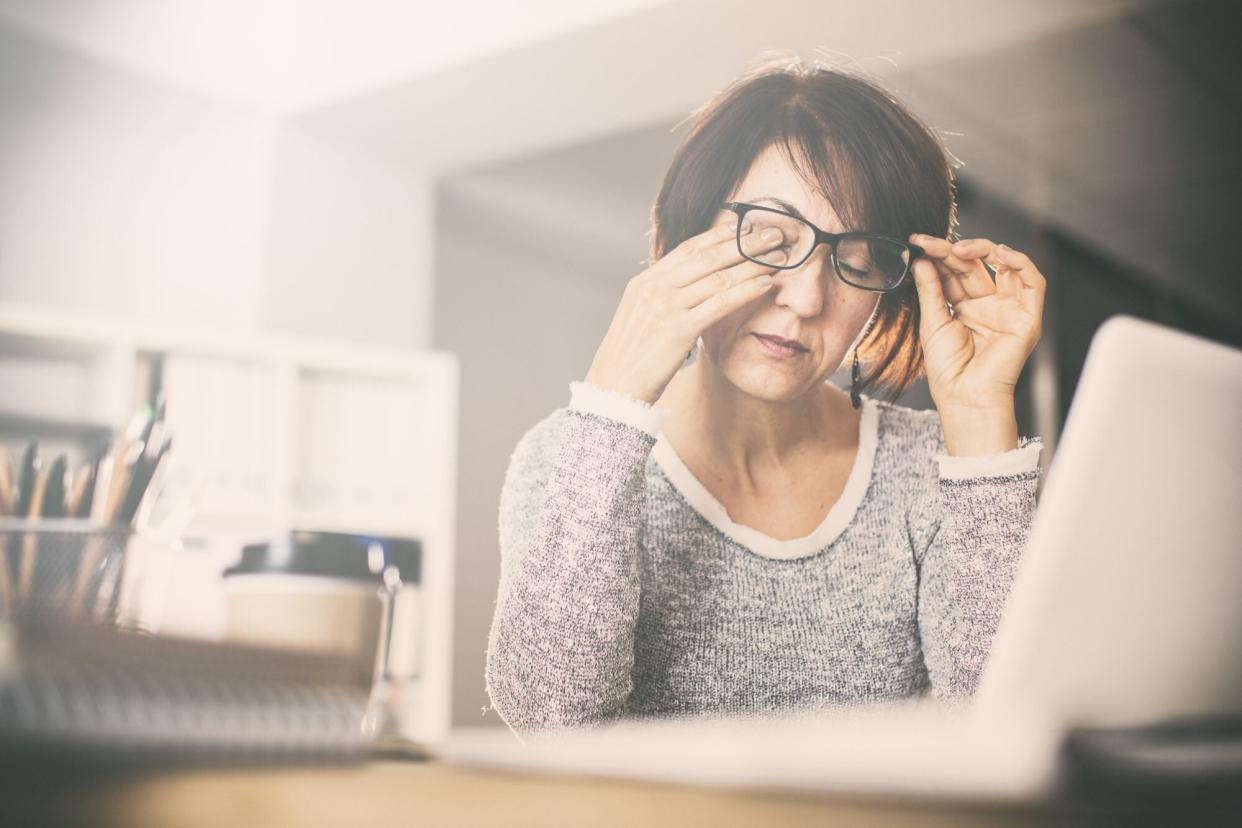Do You Have Dry Eyes? Lack of Sleep Could Be the Reason, According to New Research

seb_ra / Getty Images
Getting enough sleep is important for many reasons—it helps your brain function properly, keeps you alert throughout the day, and promotes longevity. After a rough night's sleep, you likely feel a bit groggy—but did you know that not catching enough hours of rest can also effect your eye health? According to a new study published in Stem Cell Reports, sleep deprivation may disrupt cell repair in the cornea, or the clear front surface of the eye.
To obtain their findings, researchers from the United States and China used mice to learn more about the impact sleep deprivation has on the eyes. The team assessed gene expression in the mice after two days of reduced sleep and again after 10 days. They found that after two days, 287 stem cell genes were up-regulated and 88 were down-regulated in the corneas, compared with control cornea. After 10 days, they saw 272 significantly up-regulated genes and 150 down-regulated genes. Some of these genes controlled stem cell production, which focuses on healing. After being up-regulated for so long, however, stem cells became depleted, leading to delayed healing times.
Related: The Essential Guide to Healthy Eyes That Everyone Should Read at Least Once
The researchers continued to test the subjects after one to two months of sleep deprivation and found that the transparency of the cornea was reduced and its surface was rough—something that could lead to "ocular discomfort, including dryness, pain, pruritus, and hyperemia of the eye," the authors note. Ultimately, short term sleep deprivation increased the rate at which stem cells in the cornea multiplied, depleting them over time; this lack of sleep changed the make-up of the protective tear film in the mice's eyes (in other words, their tear film antioxidants were reduced). According to the study, the tear film composition had an impact on corneal stem cell activity, preventing the cornea's ability to repair itself properly—something that very well might impact humans, as well.
While long-term sleep deprivation is further associated with an increased risk of the aforementioned eye disease conditions, most notably dry eye disease, the researchers found a way to treat it in the mice with damaged corneas. To do so, they used eye drops containing antioxidants, which repaired the damage inflicted from lack of sleep. More research is needed to determine whether or not this is a feasible solution for humans who suffer from dry eyes.

